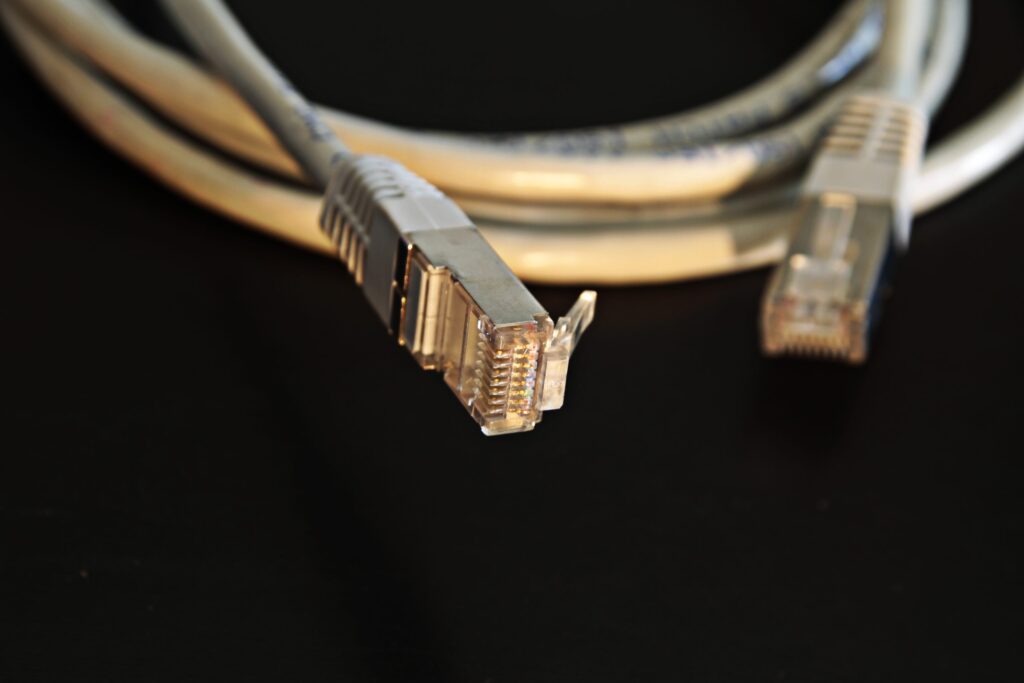Internet protocol (IP) telephony refers to the modern technologies which utilise IP in order to exchange fax, text, voice and other communications. These systems are a reliable and cost-effective solution for any business. IP or Internet Protocol relates to the ways in which data is transferred between one internet-enabled device or another. Any internet-enabled device will have at least one unique IP address, and this enables it to be identified by other devices which enables the smooth transfer of data.
So, how is data exchanged on the internet?
Any data sent or received on the internet is split into packets (or chunks) by internet devices and all these packets will contain the IP address of the sender and the recipient address. This is a connectionless form of communication. And, all packets are transmitted to a nearby gateway computer which then forwards them on to adjacent gateway computers until they reach one that is in an adjacent location to the recipient. This adjacent gateway computer forwards the data packets on to the specific recipient address.
Splitting data into small packets in this way means that they can be sent via different gateway computers to their destination address. Although data is transmitted in different packets via IP, they are put back into order by a protocol called Transmission Control (TCP).
What exactly is IP telephony?
IP telephony can be used to communicate in a number of ways that would traditionally have been the province of Public Switched Telephone Networks (PSTN). With IP telephony, calls can be made in much the same way that emails and other internet communications travel via packets, as detailed above. All calls travel via a Local Area Network (LAN) or via the internet, which means they are toll-free.
This is known as a packet-switched Voice over IP (VoIP) system or as Internet telephony. The common name for IP telephony is VoIP phone systems. IP phone systems will typically consist of a VoIP private exchange and desktop VoIP phones will be used to connect with the VoIP service provider via the LAN.
The communications industry was revolutionised towards the end of the 1990s when IP began to make inroads and became a reliable transportation method for all forms of data communication. In the modern arena just about all communication carriers make use of some form of IP infrastructure for voice services.
Many business organisations already use VoIP for internal voice calls and also have plans to implement a unified communication strategy down the line. IP telephony is the technology that drives these systems. One main challenge within the IP telephony sector is the dependable delivery of voice, text and video packets to users around the world.
Many consumers use the terms VoIP and IP telephony interchangeably, thinking they are equal. However, VoIP is just one subset of these systems. The differences are fairly subtle, though, which is the reason most people believe them to be the same.
Benefits of IP telephony
One major advantage of IP telephony is its cost-effectiveness for long-distance telephone calls. These calls are free of charge, apart from the costs paid for access to the Internet. One of the most popular, freely available platforms for this type of service is Skype.
Some of the major IP telephony providers and service users include local telephone companies and long-distance providers, like AT&T, internet service providers (ISPs) and cable TV companies. So, it can be seen that IP telephony already impacts upon many internet users.
VoIP is the system used to standardise the IP telephony sector and offers users far greater complexity, flexibility and versatility. Systems can be customised to entirely meet the needs of different organisations and increased, enhanced connectivity means businesses can become more productive over the long term. IP telephony enables employees to choose the internet-enabled communications devices they prefer, and also means remote communications are much easier.
Some of the principal benefits of IP telephony systems include:
– very significant cost savings for phone calls, as already noted. Businesses effectively bypass the fees levied by phone companies as they no longer need analogue phone lines. Over the long term, this means very big cost reductions in telephone operations for any business.
– enhanced connectivity due to the fact that these systems transmit data via the internet. Businesses will find it’s easy to keep in touch with clients and employees in any global location, making it far smoother to conduct business travel and set up overseas operations. With long distance calls costing absolutely nothing, this can be a real incentive for business growth and enhanced mobility.
– increased features allow business users to communicate in a variety of different ways. IP telephony really opens up business communications to the very fullest extent, enabling conference and video calls to take place in real-time and unified messaging to any location in the world. Users will find it’s an easy matter to programme their IP phones to increase capabilities even more.
– IP telephony systems are easy to install and configure and continual software updates mean they are much more secure than traditional phone systems. IT employees will discover the interface for these systems is intuitive and easy to understand.
– these systems can be scaled, and the number of phone connections is not restricted. This makes it far easier for a business to increase or cut numbers of users and phones to meet requirements.
Creating a streamlined and unified communications service is much easier for any business when IP technology is in place. These systems enable users to programme the service to meet their needs more exactly and open up a wide range of opportunities to businesses of any size. The variety of available functions and the reduced operational costs of IP telephony systems make them an affordable and effective business communications solution for modern companies eager to embrace all the new technologies on the market.
Immervox offer the specialist IP telephony systems and unified communications services that can be tailored to meet the requirements of any business. Get in touch for more information.





